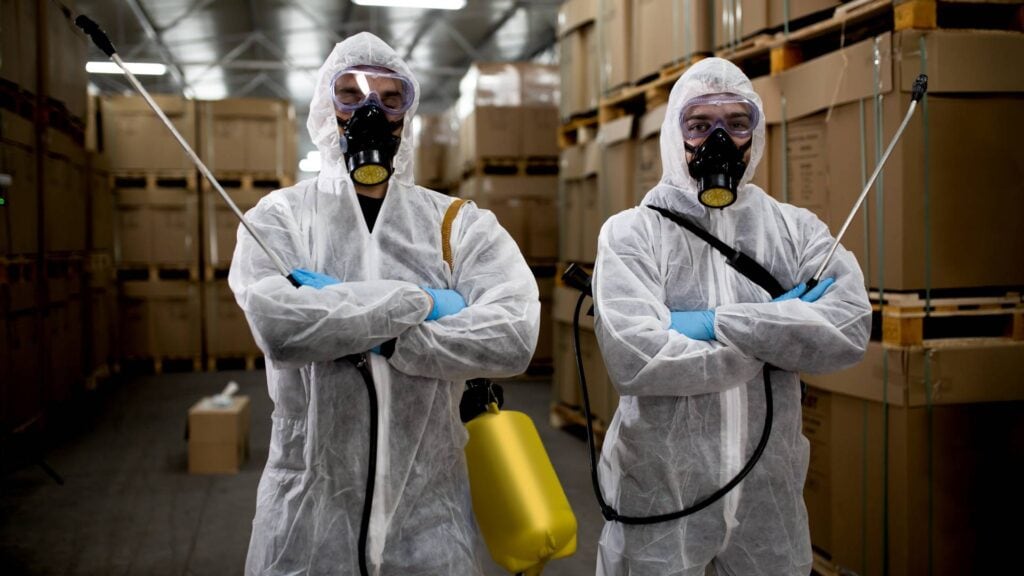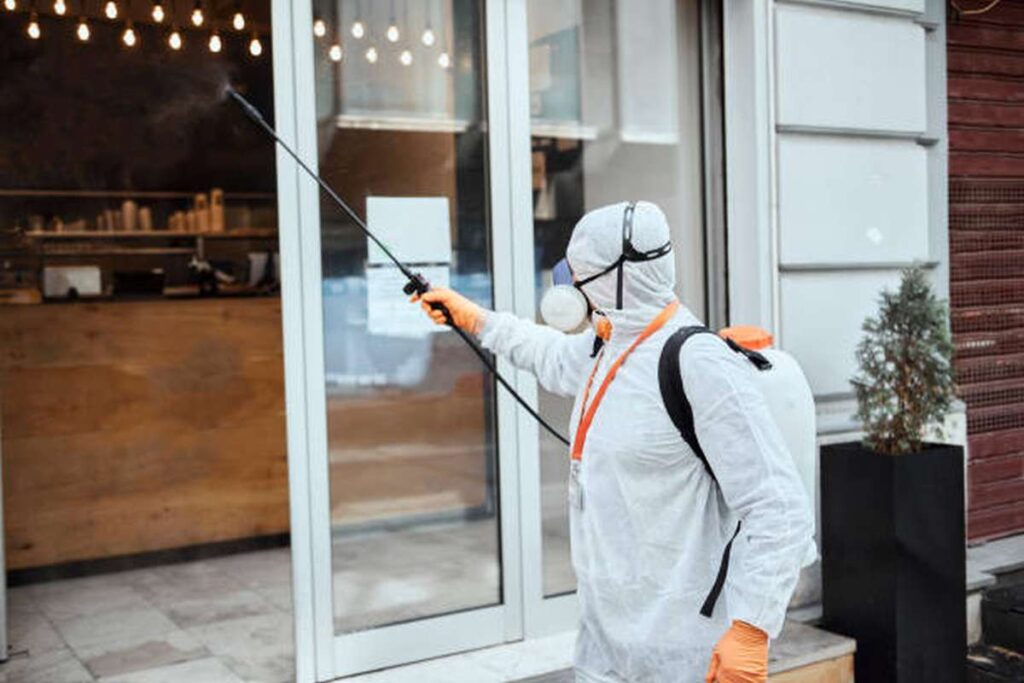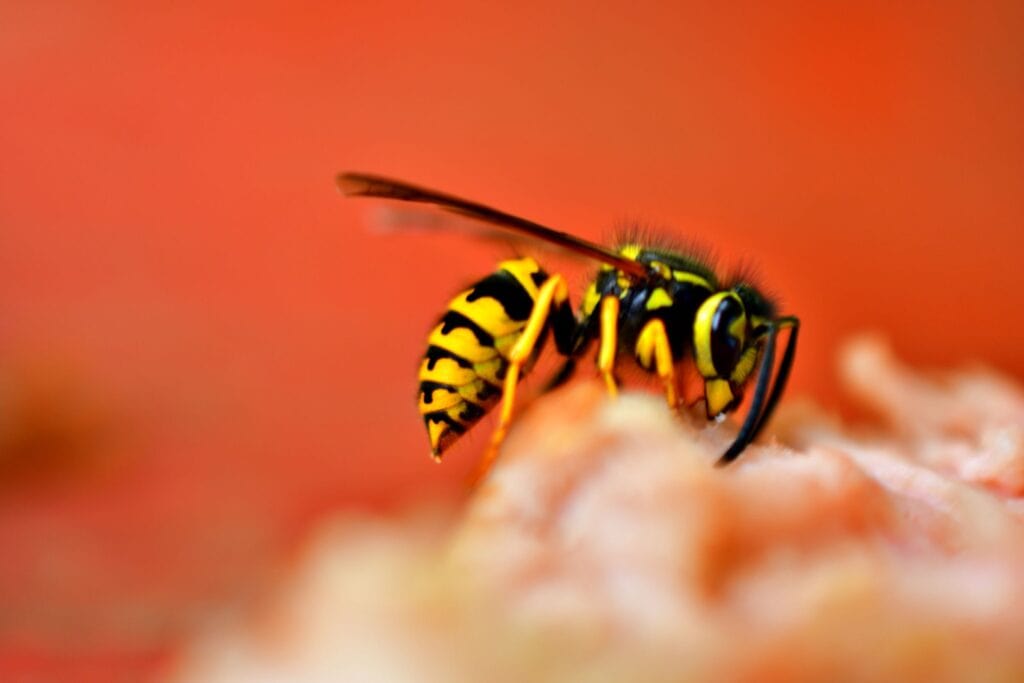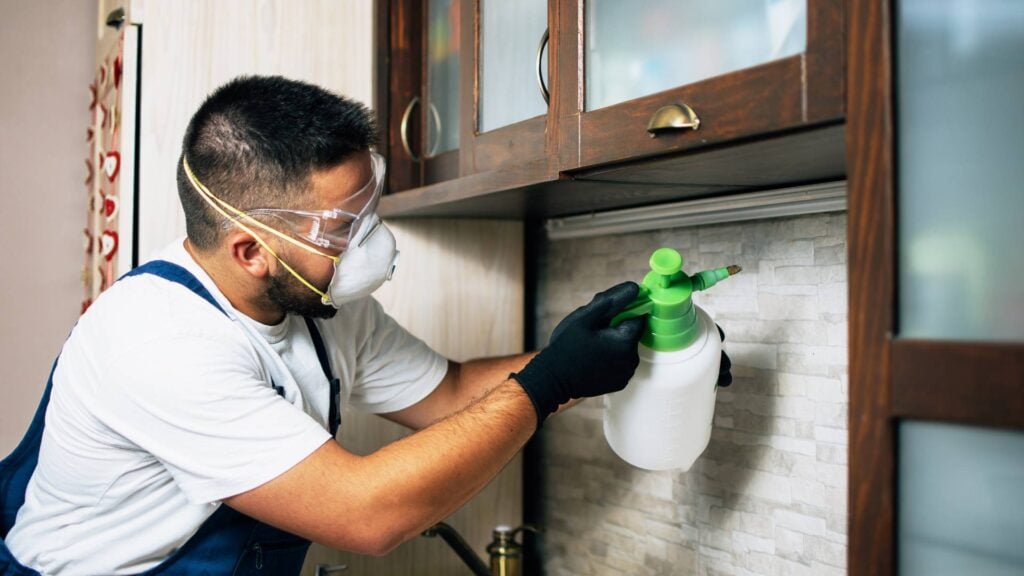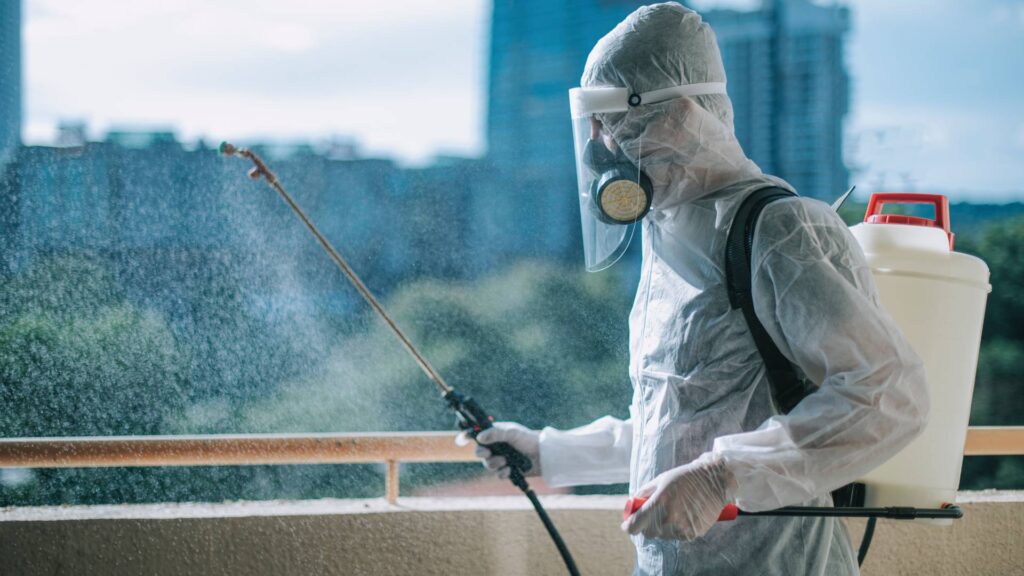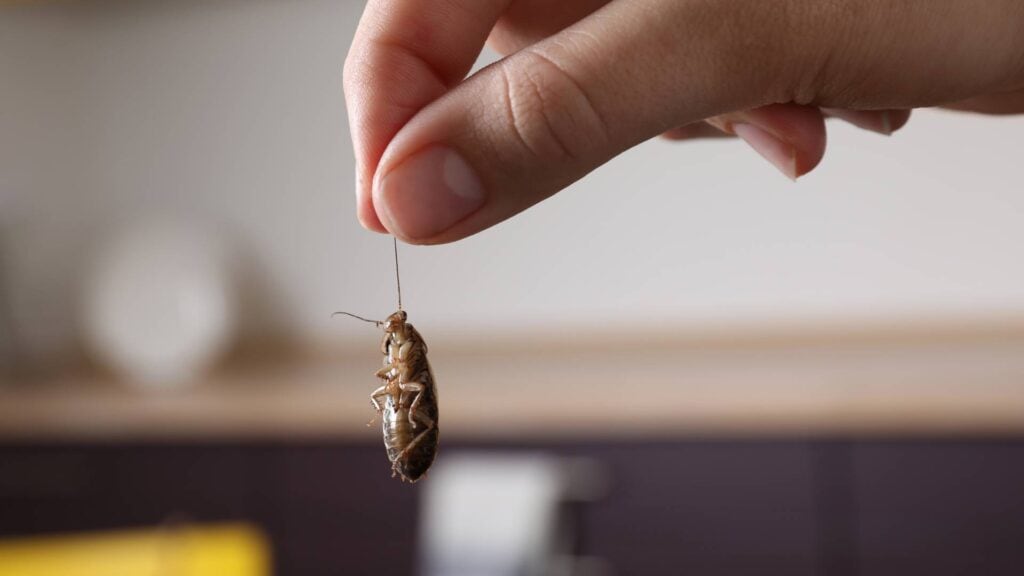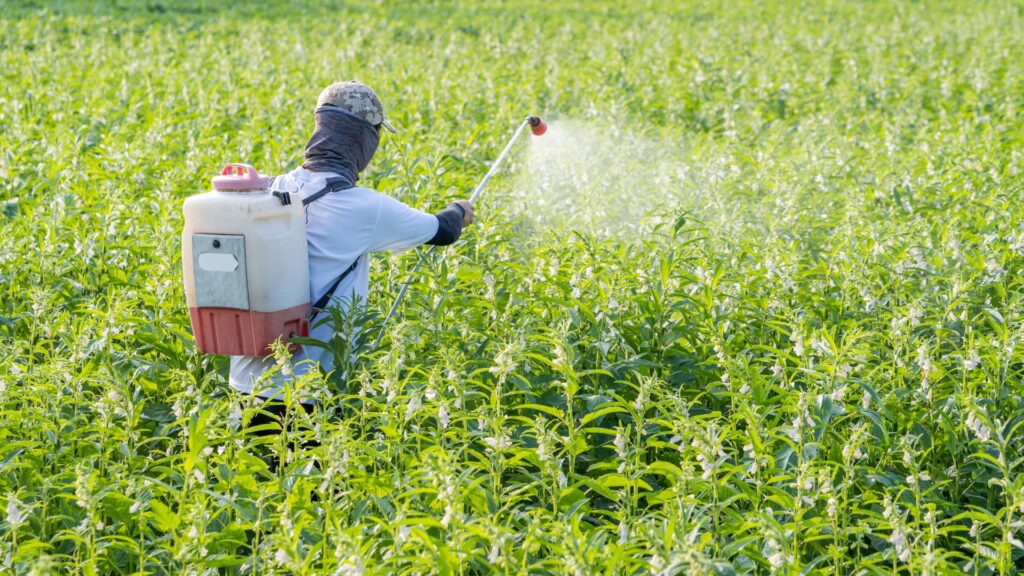Exploring modern pest control techniques and innovations. In a world where pests pose persistent challenges to our homes, businesses, and environment, staying ahead with cutting-edge solutions is paramount. Join us on a journey through the latest advancements in pest management, where we delve into innovative methods, technologies, and strategies reshaping the landscape of pest control. From integrated pest management (IPM) to eco-friendly alternatives and beyond, we'll unravel the mysteries behind effective, sustainable, and forward-thinking approaches to keeping pests at bay in the modern age.
Why Is It Important to Stay Updated with Modern Pest Control Methods?
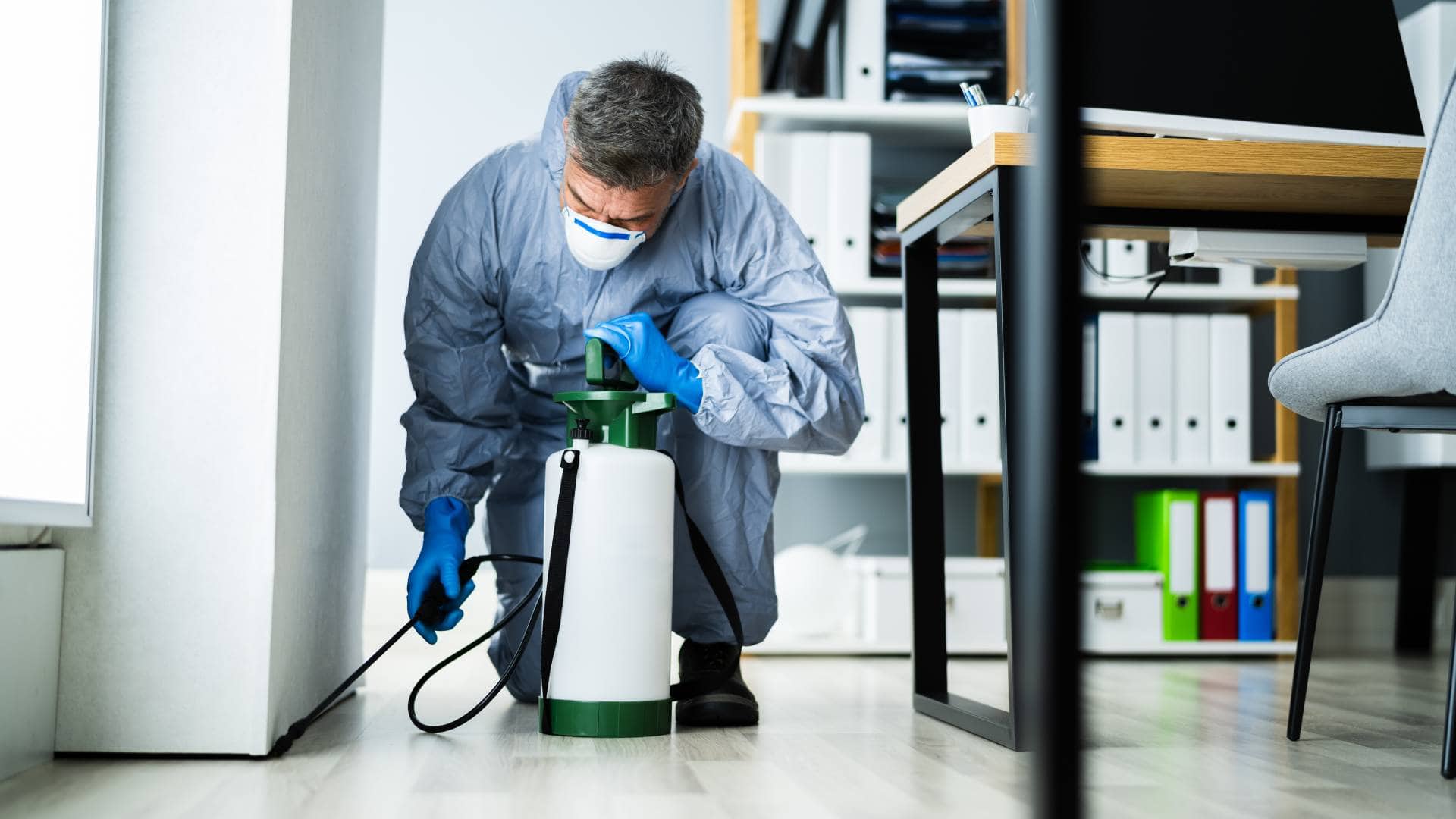
In today's fast-evolving world, the significance of staying up-to-date with the latest methods in residential pest control cannot be overstated. With technological advancement and a deeper understanding of pest behaviour, contemporary pest control methods offer a more effective, environmentally friendly, and health-conscious approach to managing pest populations that threaten our homes and well-being.
Adapting to Changing Pest Dynamics
Pests, by nature, are adaptive creatures. As our environment changes due to urbanisation, climate change, and other factors, so do the behaviours and habitats of pests. Traditional pest control methods, while once effective, may yield different results in today's context. Modern pest control techniques are designed to address these evolving challenges, utilising integrated pest management (IPM) strategies focusing on long-term prevention through biological, cultural, physical, and chemical tools.
Health and Environmental Considerations
The importance of using contemporary pest control methods extends beyond mere effectiveness. Traditional chemical-heavy approaches can pose significant health risks to humans and pets, as well as cause harm to the environment. Modern methods prioritise safety, often employing eco-friendly solutions that minimise toxic chemicals. By focusing on natural predators, biological controls, and environmentally safe products, we can protect our homes from pests in a manner that safeguards our health and the planet.
Cost-Effectiveness and Sustainability
Investing in updated pest control methods can also be more cost-effective in the long run. Homeowners can avoid the recurring costs associated with less effective, traditional extermination techniques by emphasising prevention and employing targeted treatments that address the root cause of pest infestations. Furthermore, sustainable pest control practices ensure that we do not contribute to the growing problem of pest resistance, which can render specific treatments ineffective over time and lead to increased costs and reliance on harsher chemicals.
The Role of Professional Expertise
Staying updated with contemporary pest control methods often requires the expertise of professionals knowledgeable about the latest advancements in the field. These experts can provide customised solutions tailored to your residential space's specific needs and challenges. They also ensure pest control measures are implemented safely and effectively, providing peace of mind and long-term protection.
How Has Pest Control Evolved Over Time?
The evolution of pest control is a fascinating journey through time, reflecting humanity's ongoing battle against pests and the innovative strategies developed to manage them. This journey spans from ancient practices to modern, sophisticated methods, highlighting the dynamic nature of pest control strategies in response to changing environmental, societal, and technological landscapes.
From Ancient Remedies to Chemical Innovations
The story of pest control begins in ancient civilisations, where sulphur compounds were used by Sumerians around 2500 B.C. to combat insect pests, and this period marked the inception of using natural substances to deter pests, a practice that evolved over centuries. By 300 B.C., the Chinese had recognised the importance of phenology in pest control, using natural enemies to manage pests in agricultural settings. The discovery of soap as a pesticide in 1101 A.D. by the Chinese further exemplifies the early reliance on natural, readily available materials for pest management.
The Rise of Chemical Pesticides
The landscape of pest control underwent a significant transformation with the synthesis of DDT in 1874, although its insecticidal properties were not recognised until 1939 by Swiss chemist Paul Hermann Müller. DDT's introduction marked the beginning of the synthetic pesticide era, revolutionising pest control practices and significantly impacting public health by controlling insect-borne diseases. However, the subsequent decades saw growing concerns over pesticide resistance, environmental damage, and human health impacts. This led to a shift towards more sustainable and integrated pest management (IPM) approaches in the 1960s.
Integrated Pest Management and Beyond
Integrated Pest Management (IPM) emerged as a holistic approach, combining biological, cultural, physical, and chemical tools to manage pests in an environmentally and economically sound manner. This approach emphasises the importance of understanding pest life cycles, monitoring pest populations, and using targeted control methods to minimise environmental impact and promote sustainability.
Technological Advancements and Future Directions
The evolution of pest control continues with technology integration, such as developing intelligent traps and sensors for monitoring pest activity and exploring genetic modification techniques to control pest populations. These innovations reflect a move towards more precise, efficient, and less environmentally damaging pest control methods.
What Are Eco-Friendly Pest Control Solutions and Why Are They Important?
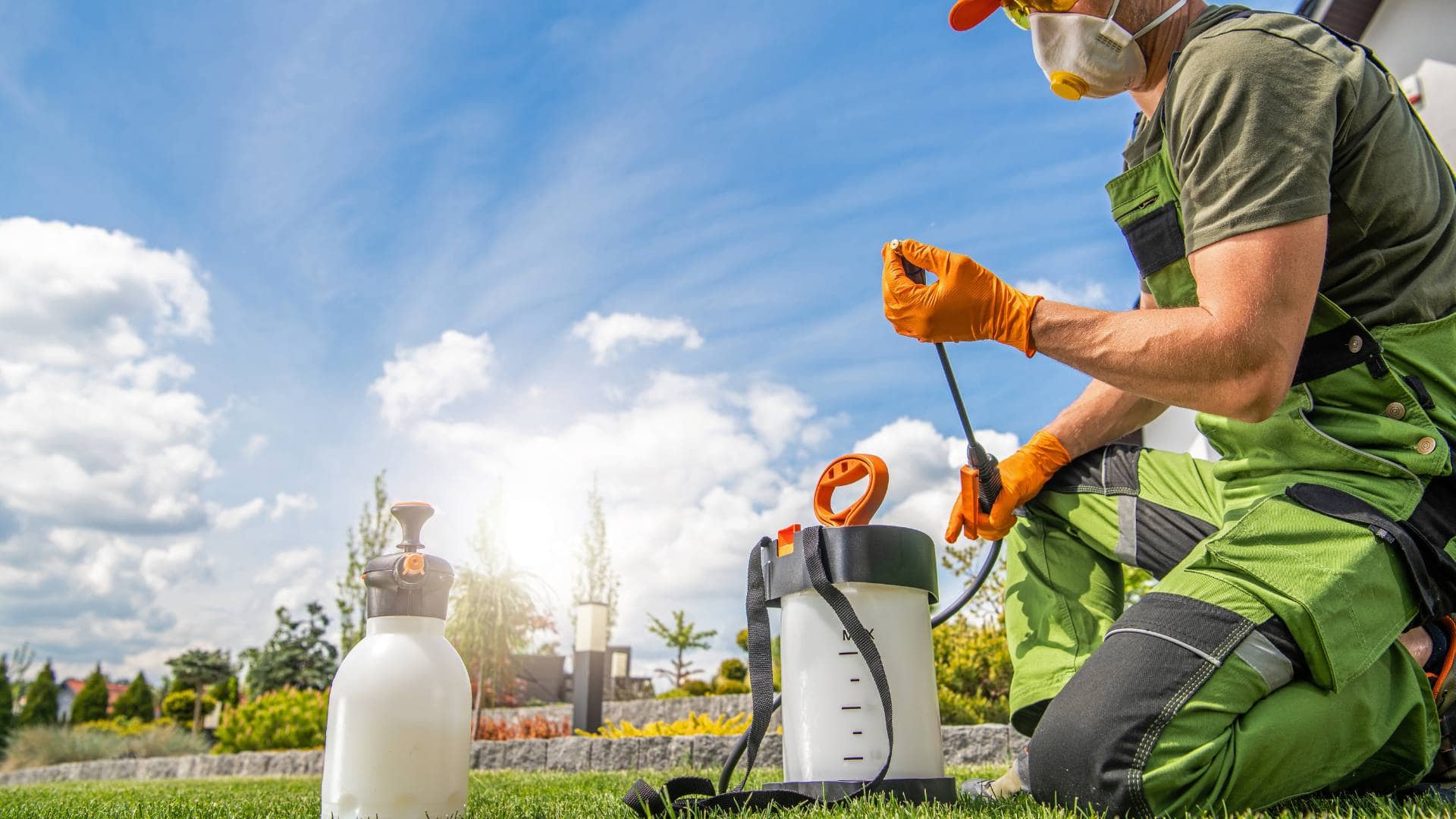
Eco-friendly pest control solutions represent a paradigm shift in managing pests in our homes and gardens, moving away from reliance on harmful chemicals towards methods that protect our health and the environment. This approach not only addresses pest issues effectively but also contributes to the sustainability of our planet.
Eco-friendly pest control emphasises using natural methods and substances less harmful to humans, pets, and non-target species. It involves strategies like biological control, where natural predators or parasites are introduced to control pest populations and cultural practices that alter the environment to make it less hospitable for pests. Other methods include plant-based solutions, physical traps, and barriers to prevent pest entry and infestation.
What Benefits Do Eco-Friendly Pest Control Methods Offer?
- Environmental Preservation: Traditional pesticides can contaminate soil, water, and air, harming wildlife and ecosystems. Eco-friendly methods reduce this risk, ensuring a healthier planet.
- Health and Safety: Chemical pesticides pose significant health risks, including respiratory problems and chronic diseases. Natural pest control methods are safer for families and pets, reducing exposure to toxic substances.
- Long-Term Effectiveness: Eco-friendly pest control targets the root causes of infestations, offering sustainable solutions rather than just temporary relief.
- Preservation of Beneficial Organisms: Many chemical treatments harm beneficial insects that play crucial roles in ecosystems. Natural methods allow these organisms to thrive, promoting biodiversity.
- Reduced Resistance: Pests can become resistant to chemical pesticides, making them ineffective over time. Eco-friendly strategies use diverse approaches, making it harder for pests to develop resistance.
Eco-Friendly Methods to Control Pests
- Biological Control: Utilises natural predators like ladybugs for aphids and nematodes for soil pests.
- Cultural Practices: Includes crop rotation and cleanliness to deter pests naturally.
- Natural Predators: Encourages beneficial insects and animals to reduce pest populations naturally.
- Plant-Based Solutions: Uses plants and essential oils as natural insect repellents.
- Traps and Barriers: Employs physical means to prevent pests from entering homes and gardens.
Natural Pest Control Methods
- Diatomaceous Earth: A natural powder that dehydrates and kills crawling insects.
- Essential Oils: Peppermint, lavender, and eucalyptus oils repel insects with their aromatic properties.
- Neem Oil: Disrupts the growth and reproduction of various pests.
- Sticky Traps: Capture flying insects without the use of toxic chemicals.
Eco-Friendly Termite Control
Addressing termite infestations with eco-friendly methods involves identifying infestation sources and employing non-toxic strategies like cardboard traps, soapy water, boric acid, and saltwater solutions. These methods provide effective termite control while minimising environmental impact.
What Are Practical Tips for Implementing Modern Pest Control Strategies?
Implementing modern pest control strategies is essential for businesses and homeowners looking to protect their premises from unwanted pests. With advancements in technology and a better understanding of pest behaviour, numerous practical tips and strategies can be employed to manage pest issues effectively. Here's a comprehensive guide based on insights gathered from various sources:
Embrace Digital Marketing for Pest Control Businesses
Utilise social media platforms to engage with your audience, share informative content, and showcase customer testimonials.
Implement local SEO strategies to improve your business's visibility in search engine results, making it easier for potential customers to find you.
Consider email marketing campaigns to keep your audience informed and engaged with your services.
Optimise Your Service Offerings
Diversify your service packages to cater to customer needs, including residential, commercial, eco-friendly options, and emergency response services.
Establish partnerships with real estate agencies or property management companies to expand your client base.
Prepare Your Home for Pest Control Services
Take photos of affected areas to help identify contributing factors to pest issues.
Tidy up your home to give exterminators clear access to affected areas.
Remove pets and family members from the premises during treatment, but be nearby to provide access and information to the pest control professionals.
Reduce Exterior Pest Attraction
Keep the perimeter of your property free of organic material and adequately store equipment to avoid providing shelter for pests.
Control moisture and eliminate standing water to reduce pest attraction.
Use protective coverings and regularly inspect outdoor vessels and areas for pest infestations.
Implement Modern Marketing Strategies
Monitor your local search presence and manage your online reputation to establish trust and authority in the pest control industry.
Invest in both online and offline advertising to reach a broader audience.
Optimise your website for SEO to ensure it ranks well in search engine results.
Engage in Community and Networking
Create partnerships with local businesses and leverage community groups to increase your visibility and credibility.
Offer educational resources and workshops to position your business as a knowledgeable authority in pest control.
Innovative Marketing and Customer Engagement
Consider creating humorous or memorable pest control commercials to stand out.
Engage in referral marketing to encourage existing customers to recommend your services to others.
Focus on Customer Satisfaction and Loyalty
Implement a customer loyalty program to reward repeat business and foster long-term relationships with your clients.
Conclusion
Modern pest control techniques and innovations are crucial in today's fast-evolving world. These methods offer a more effective, environmentally friendly, and health-conscious approach to managing pest populations. Adapting to changing pest dynamics, modern pest control techniques use integrated pest management (IPM) strategies focusing on long-term prevention through biological, cultural, physical, and chemical tools.
Health and environmental considerations are also important, as traditional chemical-heavy approaches can pose significant health risks to humans and pets. Modern methods prioritise safety, often employing eco-friendly solutions that minimise toxic chemicals. By focusing on natural predators, biological controls, and environmentally safe products, we can protect our homes from pests while safeguarding our health and the planet.
Investing in updated pest control methods can be more cost-effective in the long run, as they focus on prevention and targeted treatments that address the root cause of pest infestations. Professional expertise is often required to provide customised solutions tailored to residential spaces' specific needs and challenges.
The evolution of pest control has been a fascinating journey, spanning from ancient practices to modern, sophisticated methods. Integrated pest management (IPM) emerged as a holistic approach, combining biological, cultural, physical, and chemical tools to manage pests in an environmentally and economically sound manner. Technological advancements like intelligent traps, sensors, and genetic modification techniques continue advancing pest control methods.
Eco-friendly pest control solutions are:
- A shift in pest management.
- It focuses on natural methods and substances that are less harmful to humans.
- Pets.
- Non-target species.
These methods contribute to environmental preservation, health and safety, long-term effectiveness, preservation of beneficial organisms, and reduced resistance to chemical pesticides.
Eco-friendly methods include biological control, cultural practices, natural predators, plant-based solutions, traps and barriers, and natural pest control methods like Diatomaceous Earth, essential oils, neem oil, and sticky traps. For termite control, eco-friendly methods involve identifying infestation sources and employing non-toxic strategies like cardboard traps, soapy water, boric acid, and saltwater solutions.
To implement modern pest control strategies, businesses should embrace digital marketing, optimise service offerings, prepare homes for pest control services, reduce exterior pest attraction, and implement modern marketing strategies. These include using social media platforms, local SEO strategies, email marketing campaigns, diversifying service offerings, preparing homes for pest control services, reducing exterior pest attraction, monitoring local search presence, investing in advertising, engaging in community and networking, creating innovative marketing and customer engagement, and focusing on customer satisfaction and loyalty. By adopting these strategies, businesses can effectively manage pest issues and contribute to the sustainability of their planet.
Content Summary
- Our blog is dedicated to exploring modern pest control techniques and innovations.
- In a world where pests pose persistent challenges, staying ahead with cutting-edge solutions is crucial.
- Join us as we journey through the latest advancements in pest management.
- We unravel the mysteries behind effective, sustainable, and forward-thinking approaches.
- The importance of staying updated with contemporary methods must be balanced.
- Advancements offer a more effective, environmentally friendly, and health-conscious approach.
- Pests adapt to changing environments, requiring innovative pest control techniques.
- Integrated pest management strategies focus on long-term prevention.
- Health and environmental considerations drive the shift towards eco-friendly alternatives.
- Cost-effectiveness and sustainability are critical benefits of updated pest control methods.
- Professional expertise ensures the safe and effective implementation of pest control measures.
- The evolution of pest control reflects humanity's ongoing battle against pests.
- From ancient remedies to chemical innovations, pest control has come a long way.
- The rise of DDT revolutionised pest control practices in the 20th century.
- Integrated Pest Management (IPM) emerged as a holistic approach in the 1960s.
- Technological advancements, such as intelligent traps, enhance pest monitoring.
- Eco-friendly solutions represent a paradigm shift in pest management.
- These methods protect health, promote sustainability, and preserve ecosystems.
- Biological control utilises natural predators to manage pest populations.
- Cultural practices and plant-based solutions deter pests without chemicals.
- Essential oils and sticky traps offer non-toxic pest control alternatives.
- Eco-friendly termite control minimises environmental impact.
- Practical tips help implement modern pest control strategies effectively.
- Digital marketing enhances outreach for pest control businesses.
- Diversifying service offerings cater to various customer needs.
- Preparing homes for pest control services ensures optimal treatment.
- Reducing exterior pest attraction minimises infestation risks.
- Modern marketing strategies improve visibility and credibility.
- Engaging with the community and networking fosters trust.
- Innovative marketing and customer engagement tactics stand out in the industry.
- Focus on customer satisfaction and loyalty for long-term success.
- Embrace social media platforms to engage with your audience.
- Utilise local SEO strategies to improve business visibility.
- Consider email marketing campaigns to keep customers informed.
- Diversify service packages to meet different customer needs.
- Establish partnerships to expand your client base.
- Take photos of affected areas to aid in pest issue identification.
- Tidy up homes to provide clear access for exterminators.
- Keep property perimeters free of organic material to deter pests.
- Control moisture and eliminate standing water to reduce pest attraction.
- Monitor local search presence to establish trust and authority.
- Invest in both online and offline advertising for broader reach.
- Optimise websites for SEO to improve search engine rankings.
- Create partnerships with local businesses to increase visibility.
- Offer educational resources to position your business as an authority.
- Consider creating memorable pest control commercials for brand recognition.
- Implement referral marketing to encourage customer recommendations.
- Reward repeat business with a customer loyalty program.
- Prioritise safety and effectiveness in pest control practices.
- Stay informed and adaptable to meet evolving pest control challenges.
Frequently Asked Questions
Modern pest control techniques encompass a range of innovative methods and technologies aimed at effectively managing pest populations while prioritising safety and sustainability.
These techniques are vital for avoiding evolving pest behaviours and environmental changes. They offer more effective, eco-friendly, and health-conscious approaches than traditional ones.
IPM is a holistic approach to pest control that combines biological, cultural, physical, and chemical tools to prevent and manage pests sustainably.
Modern methods focus on long-term prevention, minimise environmental impact, and prioritise the health and safety of humans and pets, whereas traditional methods often rely heavily on chemical pesticides.
Eco-friendly solutions include biological control using natural predators, cultural practices to deter pests, plant-based repellents, physical traps, and barriers to prevent infestations.
